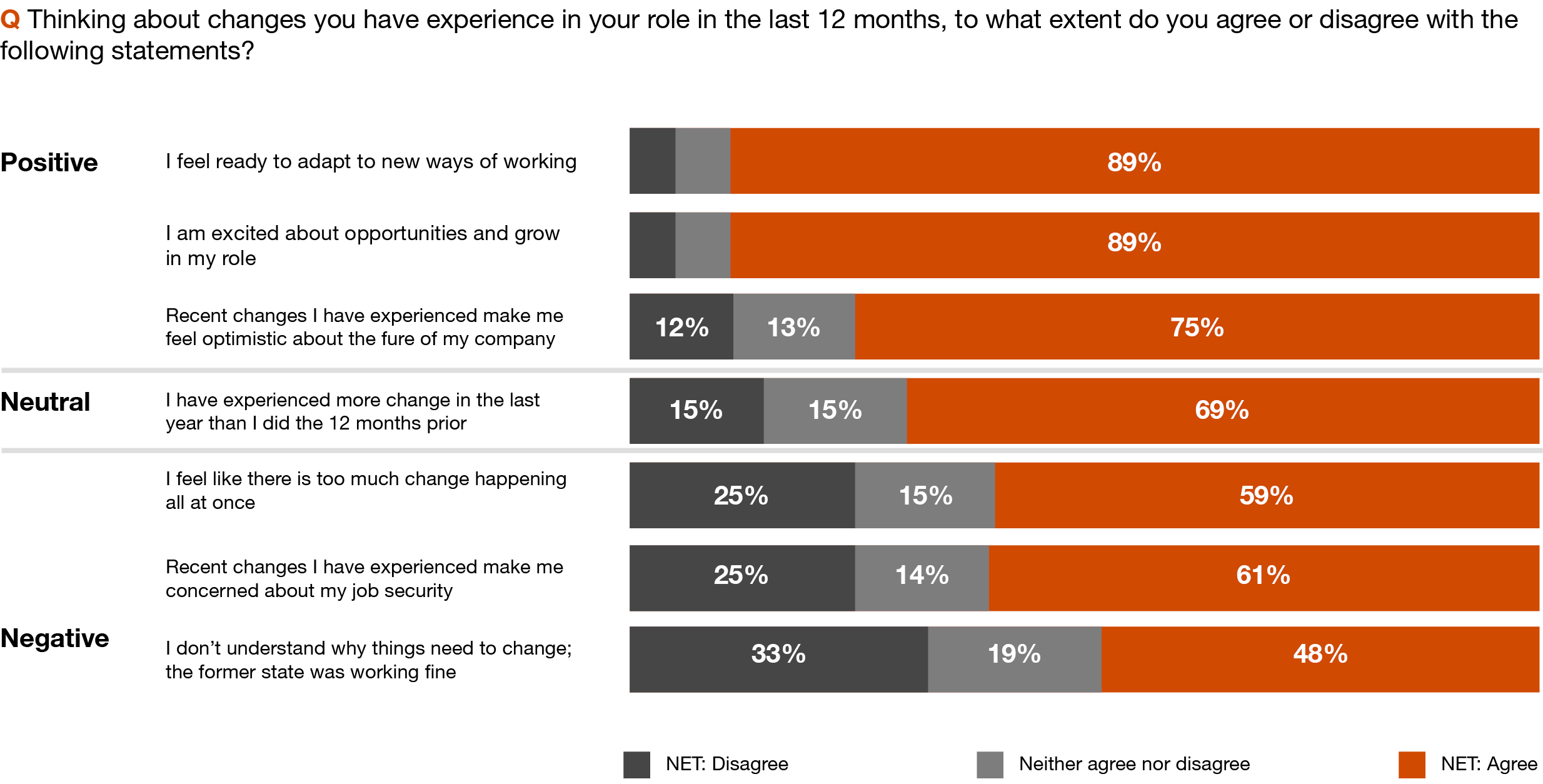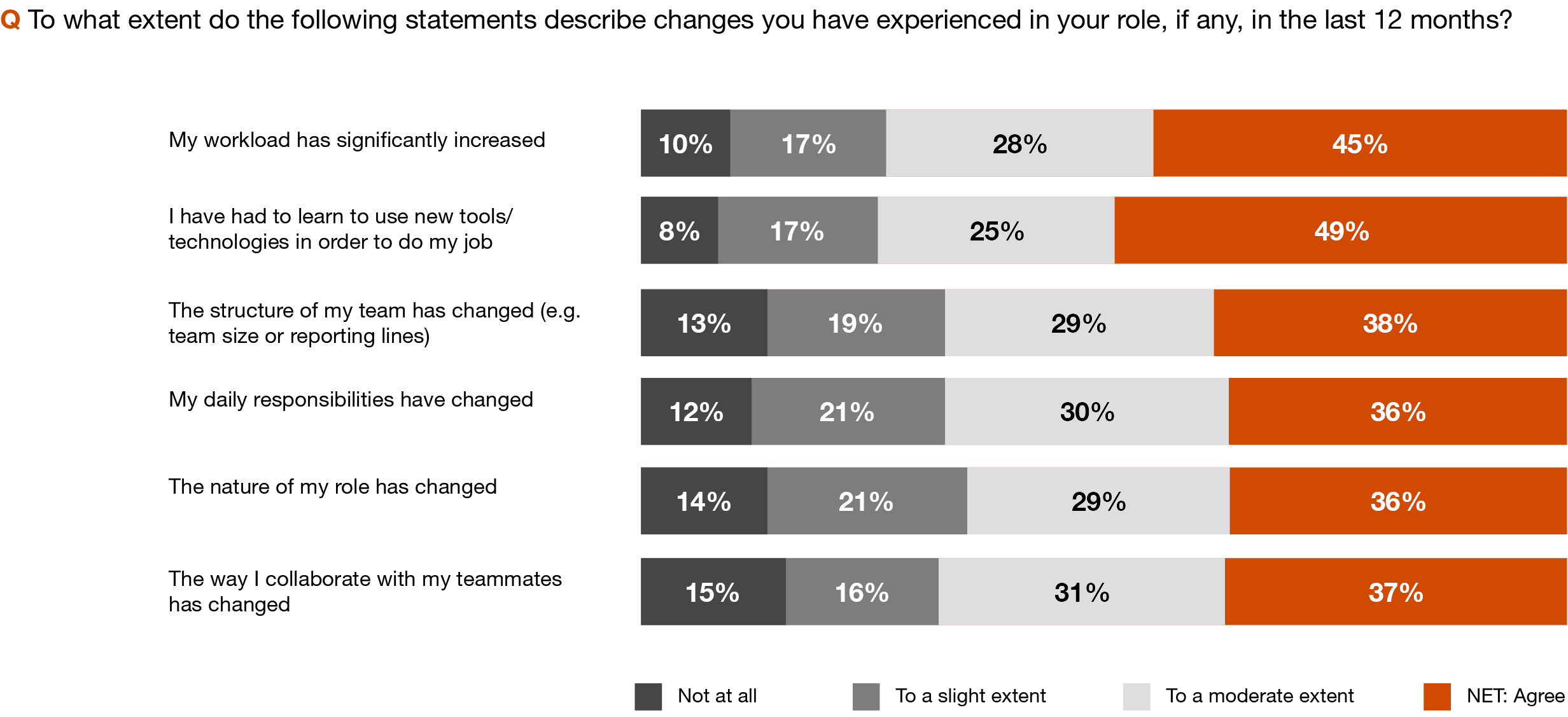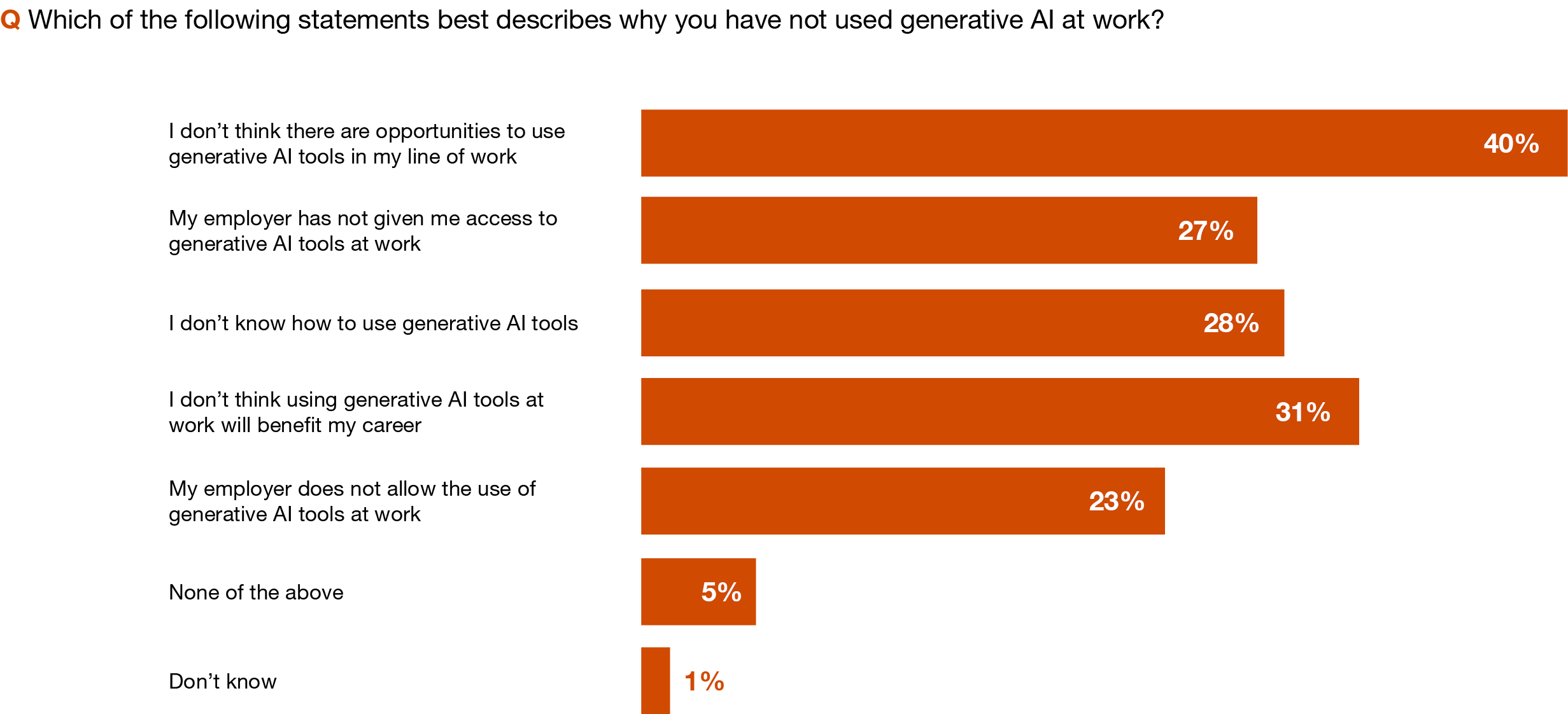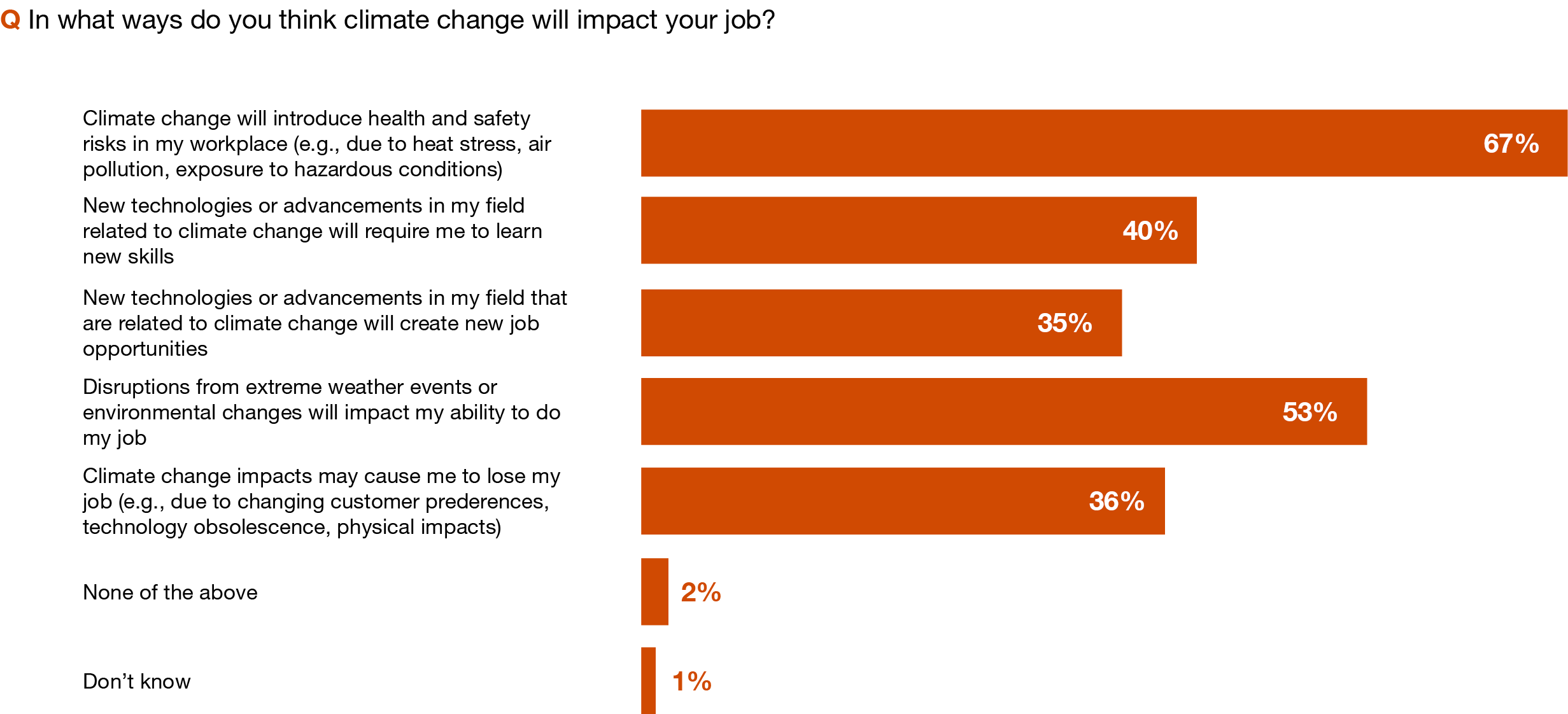
Consulting services
The SE Asian Advisory market is one of the fastest growing in the world. We help organisations across the region to work smarter and grow faster.
Things are changing at a rapid pace. And employees are starting to feel its effects. This is one of the key findings from this year's Hopes and Fears survey of 19,500 workers in 14 territories across Asia Pacific.

The rapid pace of change is unsurprising. According to PwC’s 27th Annual Global CEO Survey, 97% of CEOs in the Philippines have taken steps in the past five years to transform how their organizations create, deliver, and capture value to ensure their businesses remain viable in the future. These changes have not gone unnoticed as 69% of employees in the Philippines believe that they have experienced more change in the past year than in the 12 months prior.
These changes have also stirred up mixed feelings among Filipino workers. While 89% feel ready to adapt to new ways of working, 59% feel there is too much change happening all at once.

These shifts are reshaping how employees perform their daily tasks and collaborate with colleagues. According to respondents, the top three changes they experience at work are: using new tools and technologies (49%), increased workload (45%), and changes in team structure (38%).

The need to upskill has never been more crucial than it is today. With 68% believing that the skills their job requires will change in the next five years.

Upskilling is even a major point of consideration when changing employers. Nearly half of employees (47%) say that their decision to stay or leave a job hinges on their ability to develop their skills.

This highlights the critical importance of continuous learning opportunities in retaining talent within organizations, as employees increasingly prioritize employers who invest in their professional growth. Companies that fail to provide robust upskilling programs risk higher turnover rates and may struggle to attract top talent in a competitive job market.
The use of Generative AI (GenAI) is one of the changes that employees have had to navigate. This past year, we’ve witnessed the powerful potential of GenAI to revolutionize various aspects of business, from report generation and customer segmentation to content creation and client engagement. While the majority (70%) of employees claim to have used GenAI tools at least once, its integration remains rather slow in the country, with only 28% of workers using it regularly (weekly or daily) at work, and another 28% claiming to have never used these tools at all.

When asked why they don’t use GenAI tools, employees cited several reasons. They believe there aren’t opportunities to use GenAI in their work, they don’t think using GenAI will benefit their careers, they don’t know how to use GenAI tools, and their employers do not give them access to these tools at work.
Addressing these barriers is crucial for both business leaders and employees. GenAI can enhance productivity, foster innovation, and ensure competitiveness and relevance. By integrating GenAI effectively, companies can streamline operations, reduce costs, and drive growth and efficiency. For employees, GenAI can automate repetitive tasks, allowing them to focus on more strategic and creative aspects of their work. It can also provide personalized learning and development opportunities, enhancing skills and career growth.
Employees also expect their employers to take action to mitigate the effects of climate change.

Majority (67%) expressed concern about new health and safety risks such as heat stress, air pollution, and hazardous conditions. This sense of employer-responsibility has risen significantly since last year and is higher than the global average (44%).

Employees now call on their employers to take proactive measures to mitigate the adverse effects of climate change, with 71% globally believing that employers have a responsibility to reduce their environmental impact.
They are looking to their employers not just for economic stability and career growth, but also for leadership in sustainability and corporate responsibility. They expect companies to implement policies and practices that minimize environmental damage, such as reducing carbon footprints, improving waste management and adopting renewable energy sources. By taking these actions, employers can not only contribute to the global effort against climate change but also strengthen their reputation and foster a more engaged and motivated workforce.
This year’s Hopes and Fears survey underscores the transformative journey that employees are navigating in today's fast-paced world. While workers are ready to embrace new ways of working, the rapid pace of change brings its own set of challenges. Upskilling and continuous learning have surfaced as vital factors for employee retention and satisfaction, making it imperative for employers to invest in their employees’ development. Moreover, the strategic integration of GenAI and proactive measures to address climate change present unique opportunities for organizations to enhance efficiency, drive innovation and boost employee well-being.
As business leaders continue to reinvent their companies for the future, prioritizing these key areas will be crucial for sustaining growth, attracting and retaining top talent, and building a resilient, future-ready workforce.

The SE Asian Advisory market is one of the fastest growing in the world. We help organisations across the region to work smarter and grow faster.

Client Accounting Services: Your trusted service provider for tax compliance, accounting and payroll requirements

Integrating ESG into your strategy helps manage risks and opportunities. Take the next step forward with us.

Building a new digital world

Tax - Client Accounting Services Partner, PwC Philippines
Tel: +63 (2) 8845 2728


Tax-Client Accounting Services Director, PwC Philippines
Tel: +63 (2) 8845 2728